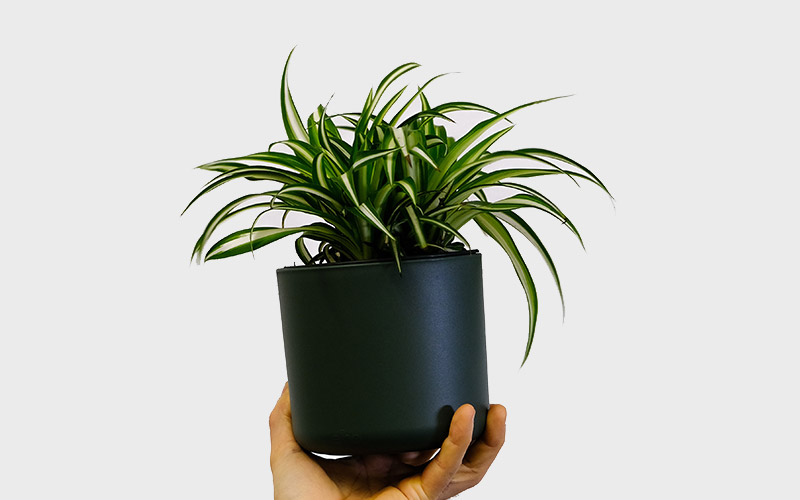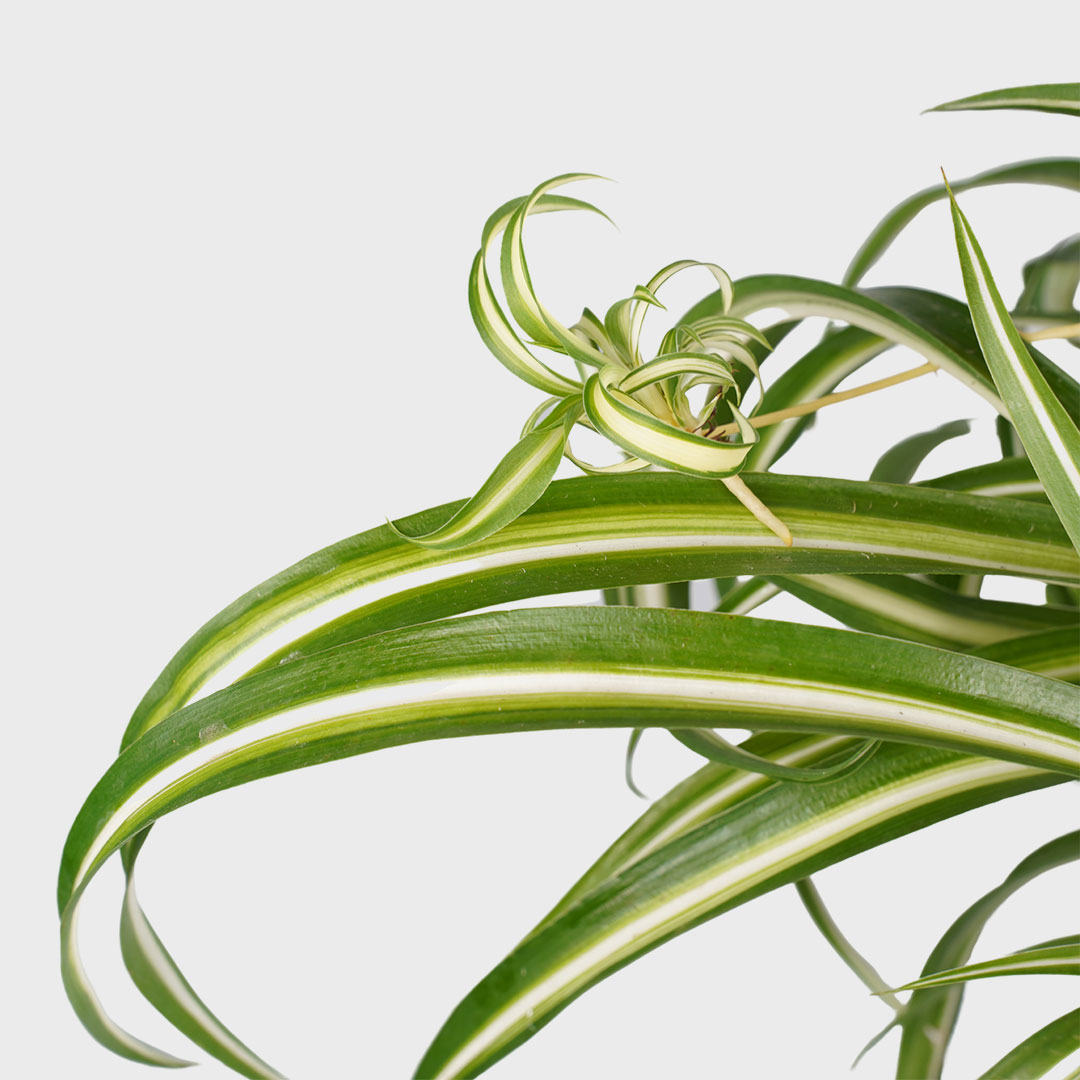
Deliver to
Europe
 English
English

The Chlorophytum comosum, or as we also call it the Spider plant, is an easy indoor plant. Originally it comes from the tropical rainforests of South Africa. You can recognize the plant by its yellow and white leaves. The best thing about the plant is the pups the plant creates.
Medium light
Water once a week
Non-Toxic
Air-purifying
The Spider plant likes to be placed in a spot with lots of light. Not all species tolerate bright light well. It is best to place the plant in medium bright light. The Spider palantprefers a spot next to a window on the west or east. A spot near the south is of course also possible. Make sure that the plant is at least 2 metres away from the window. A spot near the north probably has too little light.
Don’t forget to turn the Spider plant! The plant grows towards the sun. If you do not rotate the plant will only get full on one side and that is what you want to prevent.
It is important to always keep the soil of the Spider plant slightly moist. You can check this with your finger in the soil. Never let the Spider plant dry out. Not even in winter! It is best to water the Spider plant 2 to 3 times a week in the growing season, from spring to autumn. In the winter once a week is enough.
The Spider plant uses a lot of energy from spring onwards to make new leaves. As a result, the plant needs extra nutrients. You can provide these nutrients by means of plant nutrition. We recommend giving plant nutrition once a month. From spring until autumn. After autumn and in winter it is better not to give extra nutrients. In the autumn, plant nutrition can actually be harmful for the Spider plant!
Repotting the Spider plant is necessary every 2 years. Repotting the plant every 2 years gives it new nutrients and more room for root growth. The airier soil is also very good for the water flowing through. The best period to repot is spring.
The most ideal temperature for a Chlorophytum plant, commonly known as Spider Plant, is between 15 to 24 degrees Celsius. It prefers moderate temperatures and can tolerate slightly cooler conditions.
Occasional pruning a Chlorophytum helps remove yellowed or damaged leaves, improving the plant's appearance and encouraging new growth. Trimming back long or leggy stems can also help maintain a compact and bushy shape. Clean and sharp pruning tools should be used to make clean cuts and minimize any stress to the plant.
If the air is too dry, the Spider plant can suffer from mites. To prevent mites, it is best to use the plant sprayer once a week. Mites are an infection of mites on plants. You can recognise the infection by infected leaves and a kind of cobwebs. If you have come across mites, it is best to place the plant outside. Wind and moisture from outside will quickly keep the mites away.


If an Spider plant gets too little sunlight, the plant will grow long stems. The reason for this? Because of the long stems the plant hopes to reach the sunlight. However, this can be crucial for the plant. Because of the long stems the leaves can become too heavy and break off.
When the environment of the spider plant is too dry, the tips can become brown and dry. If you notice these brown spots, it is wise to water the plant regularly.
When you see that the spider plant gets brown leaves, it is often because of the watering. Too much water can cause brown spots in the heart of the plant. In this case it is wise to check whether the plant is suffering from root rot.
When Spider plants get dull leaves, this is usually due to a lack of light or nutrition. The easiest thing to do is to move the plant to a location with more light.
It can have several reasons that the spider plant does not produce shoots. The most common reasons are:
To stimulate new shoots you can also prune the spider plant.
Yes, you certainly can. See our tips on how to propagate the Spider plant.